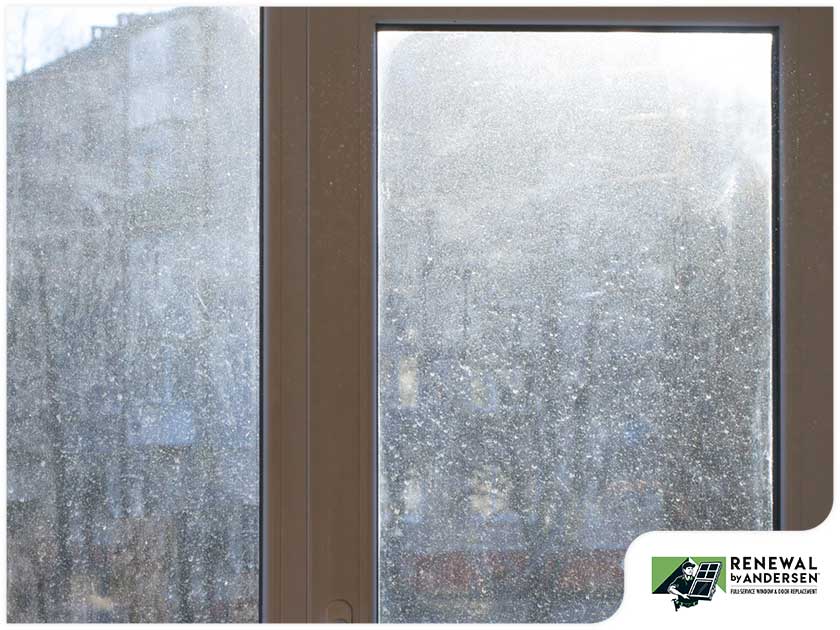

Do you long for spotless windows? Hard water from snow and rain can leave behind deposits of calcium and magnesium on your windows’ exteriors. They make glass look dirty, creating hazy-looking droplets. The minerals in hard water are difficult to remove, and a simple wash usually can’t clean them off.
Thankfully, you can get hard water spots off with the right cleaning solution. Follow these tips and tricks to remove hard water stains from your windows. You deserve to enjoy sparkling-clean windows in your home!
Follow this simple process to remove hard water stains from your windows:
Still see stains? Repeat this process and ensure both the inside and outside surfaces of your window have been cleaned. If the hard water stains still won’t come off, try one of the additional methods below. Some stains may not respond until they’ve been tackled with a few different cleaning mixtures.
You can also use lemon juice to get hard water stains off window glass. To use lemon juice to clean your windows, follow the same process as vinegar and water:
Like the vinegar and water method, this solution performs best on recent water stains.
Still struggling to get hard water stains off your window? Backing soda and water is another way to tackle tough stains. To use this method, follow these steps:
Be warned that this method is messy! You’ll likely get baking soda paste on the ground outside your house and on your hands during the cleaning process. However it’s worth it to remove pesky stains on your windows.
Another effective solution for difficult stains is to use a hard water stain remover. While these solutions are often not 100% natural, they are very effective when it comes to removing stubborn hard water stains and spots on your windows. Visit your local hardware store to pick up a hard water stain remover solution, and follow the instructions when applying it to clean your windows.
If your stains simply won’t come off, you can hire a professional cleaning service. Removing hard water stains on windows can be a very difficult and time-consuming task. If you don’t feel comfortable doing this yourself or don’t have the correct tools, hire a professional window cleaner.
Is it time to replace your windows? At Renewal by Andersen, we offer full-service window replacement that includes high-quality products, superior customer service and a complete clean-up after your windows are installed. We consider it a privilege to add value and beauty to your home.
Renewal by Andersen® window glass features a “self-cleaning” Titanium Dioxide exterior coating that helps prevent hard water marks on windows. Although you’ll still have to wash your windows, it will be less often and hard water stains won’t build up as quickly as other windows.
Renewal by Andersen offers a full range of window products, from traditional double-hung to custom-built specialty windows, to add efficiency, beauty and value to your home. Call us today at 510-391-5115 to learn more!